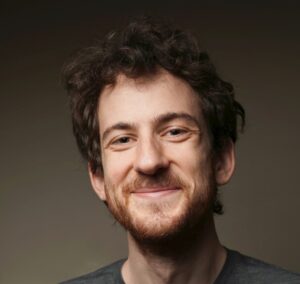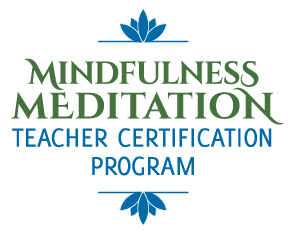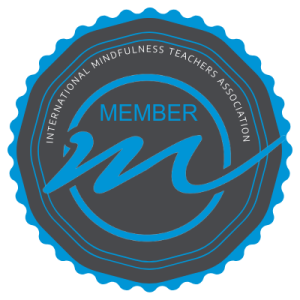
How to grow as a human and live a meaningful life? When I discovered mindfulness over 10 years ago, going through depression and a loss of meaning, this question was at the heart of my concerns. I was immediately fascinated by the practice and knew I had found my path.
Having been trained as a Centrale engineer and worked for 10 years as a software engineer in social impact startups[1]Including 4.5 years at Vendredi, a leader in skills-based sponsorship (allowing employees to engage in associations during their work time) and CSR transformation in companies., I identify with a pragmatic approach. After more than 10 years of practice and 9 cumulative months in silent retreats of intensive practice, I am deeply convinced of its potential for transformation in our lives and society, in our unique era full of challenges and upheavals.
Teaching and sharing it is a committed vocation, which I take with heart and seriousness. Find below the details of my journey and my pedagogical approach.
“Our world is populated by nuclear giants and ethical infants,” said American General Omar Bradley. Transforming the current world involves transforming our own reactivity – and mindfulness is a formidable tool to help us grow!

Alumni MMTCP

Member of IMTA
Teacher training and meditation journey
Today, I identify most with the “Pragmatic Dharma” movement – a non-dogmatic, transparent approach compatible with our modern life of practice.
Over the years, I have had the opportunity to deepen my understanding of mindfulness in Buddhist centers in Southeast Asia (where these practices come from) as well as in secular centers, linking ancient contemplative wisdom with a scientific and modern sensibility through intensive practice retreats and multiple formats.
Some training and experiences that have marked my journey:
- 2-year MMTCP mindfulness teaching training by Jack Kornfield and Tara Brach
- Motivational Interviewing training with Tucker Peck
- Trauma-Sensitive Mindfulness training with David Treleaven
- IMP cycle on the remarkable practice of Insight Dialogue and interpersonal mindfulness with Dominique Retoux, workshops and retreat on the subject with Anne Michel
- more than 9 months of intensive silent retreats including
- six weeks of retreat done in one go at Cochise Stronghold with Culadasa, the acclaimed author of The Mind Illuminated
- a month of retreats in the Mahasi Sayadaw vipassana tradition (in centers founded by Sayadaw U Pandita)
- numerous retreats with Tucker Peck and Upali, Leigh Brasington, Bhikkhu Analayo and other high-quality teachers and masters
I have had the chance to study closely with Tucker Peck (clinical psychologist, meditation teacher and founder of the Open Dharma Foundation) and in multiple retreats with Leigh Brasington (recognized meditation teacher and author[2]I particularly recommend the excellent “Right Concentration”, and his more technical book “SODAPI: Stream of Dependently Arising Processes Interacting”) and Bhikkhu Analayo (Sri Lankan Buddhist monk, researcher and prolific author).
Other important influences for me are Shinzen Young, Jack Kornfield, Ram Dass, Michael Singer and Sayadaw U Tejaniya.
Pedagogical approach
It is important for me to do my best to teach in a clear and healthy framework. Inspired by psychotherapist practices, I am supervised by the excellent Dr. Tucker Peck (clinical psychologist and meditation teacher) and in peer supervision with several groups of fellow teachers teaching in various contexts. I am MMTCP certified, a two-year program created by the very popular Jack Kornfield and Tara Brach, and a member of IMTA[3]Certification here for reference. (International Mindfulness Teachers Association).
I often start my training by announcing that my intention is that in six months, in a year, you will think of our work as having had a positive impact on your life still visible now. I therefore have a person-centered approach that focuses on the question of integration: what are the issues that are important to you, and how can you make the practice your own in a way that makes sense to you?
Regular practice: Studies are clear, it is the practice of mindfulness that brings benefits. However, the number one difficulty I see is precisely, and by far, maintaining a regular habit. Setting up and supporting the practice are therefore central elements in sharing it – to be best equipped, I incorporate the Motivational Interviewing approach (which I was trained in with Dr. Tucker Peck), a scientifically well-studied protocol for engaging lasting change.
Mindfulness and trauma: 30% of French people have been confronted with a traumatic event[4]Study “Mental health in the general population” from 1999 to 2003. Mindfulness can be a powerful double-edged tool in these situations and it is important to be able to bring modifications to the practice so that it is a real ally in reclaiming one’s present moment. Because it is not trivial to pay attention to what is there! I have been able to follow several trainings[5]Including his flagship certifying training. with David Treleaven, pioneer of Trauma-Sensitive Mindfulness and recognized reference on the subject, which informs our practices.
References
| ↑1 | Including 4.5 years at Vendredi, a leader in skills-based sponsorship (allowing employees to engage in associations during their work time) and CSR transformation in companies. |
|---|---|
| ↑2 | I particularly recommend the excellent “Right Concentration”, and his more technical book “SODAPI: Stream of Dependently Arising Processes Interacting” |
| ↑3 | Certification here for reference. |
| ↑4 | Study “Mental health in the general population” from 1999 to 2003 |
| ↑5 | Including his flagship certifying training. |